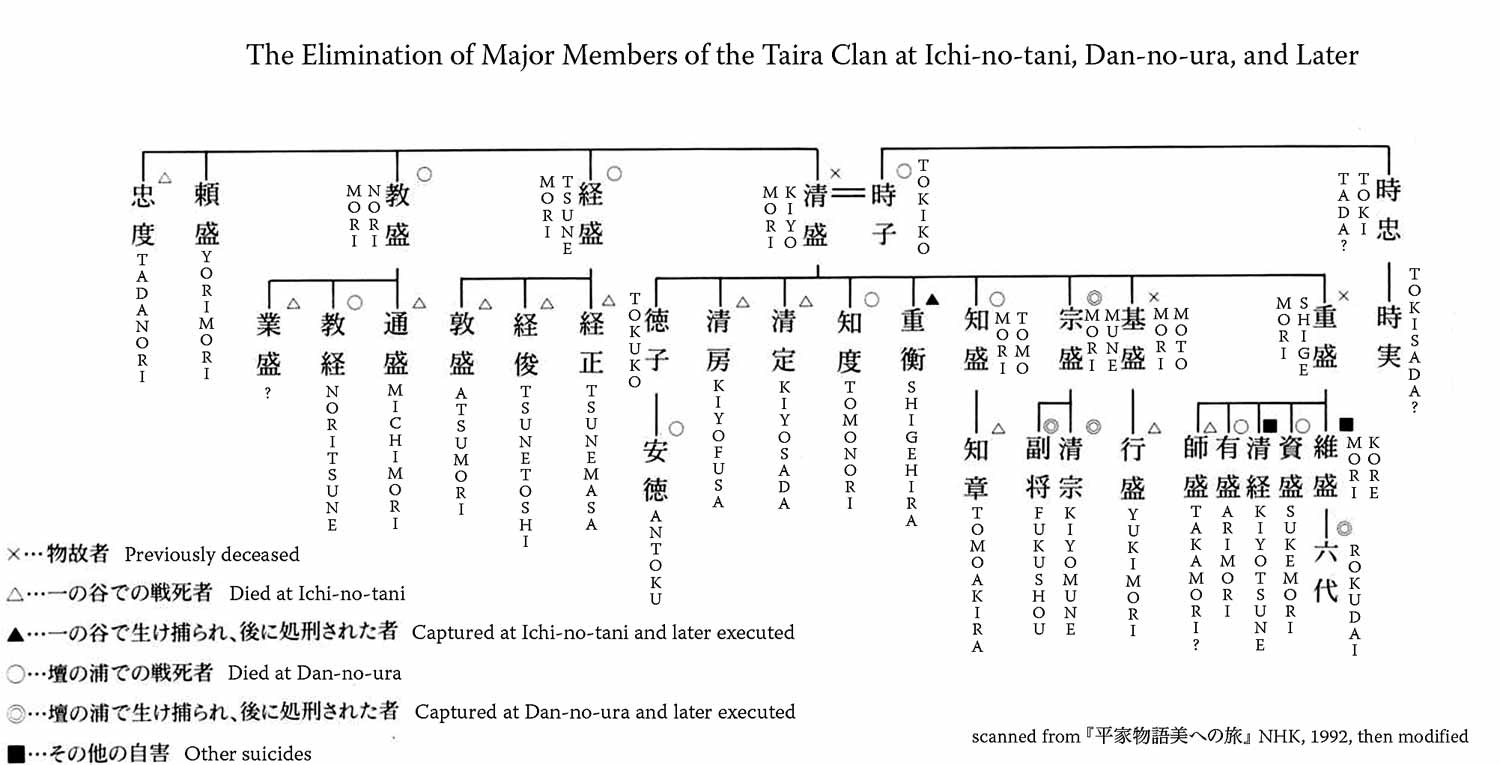Chapter 12 (Events near the end of 1185 and beyond)
Jump to Section: 1, 2, 3, 4, 5, 6, 7, 8, 9
Overview --- This chapter tells of Yoshitsune being forced to flee Yoritomo. It spends most of its time, though, describing of the end of various Taira family members. Yoritomo is consolidating power, killing anyone who might pose a threat to him. In particular, the sad story of Rokudai, Koremori's son and most likely heir to the Taira clan, is told in some detail.
12-[1] The Great Earthquake --- Describes this earthquake, one similarly described in An Account of my Ten-foot square Hut (Hôjôki).
Multimedia
Go-Shirakawa was traveling when the 1185 earthquake hits
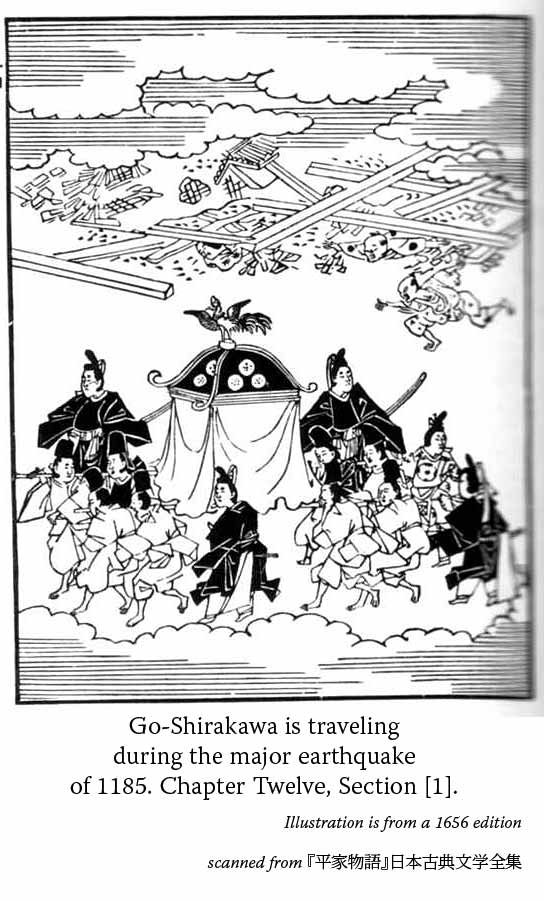
12-[2] The Matter of the Indigo Dyer --- This tells the story of Mongaku bringing yet again a head that he claims is that of Yoritomo's father. This is the second head he has given Yoritomo that he says is that of Yoritomo's father.
Character notes
- Mongaku, a monk of great discipline and standing. We first read of him in Chapter Five, Section [7], and his standing under the waterfall at Nachi for twenty-one days. He is the one, the story says, who incited Yoritomo to rebellion during his exile to a place that happened to be close to where Yoritomo was.
12-[3] The Exile of the Taira Major Counselor --- The various Taira who have survived are exiled to distant locations. One of them, Taira Major Counselor Tokitada says good-bye to Kenreimon'in before he leaves. Though Tokitada is well connected with the Go-Shirakawa group, he cannot be pardoned but must share the fate of all Taira.
12-[4] The Execution of Tosabô --- Yoshitsune continues to come under Yoritomo's suspicion and lower level leaders that once were loyal to Yoshitsune leave him to directly serve Yoritomo in Kamakura. The legendary Benkei brings to Yoshitsune a man, Tosabô Shôshun, who had been sent by Yoritomo to assassinate Yoshitsune. A woman, Shizuka, helps Yoshitsune determine the true intentions of Shôshun. Shôshun's forces are overcome and Shôshun himself is beheaded.
Character notes
- Benkei does not rate very highly in The Tale of Heike but he is elsewhere legendary as a strong and brave warrior who is a little rough around the edges. Benkei appears in both kabuki and noh dramas as well.
- Shizuka is the moving character in a Noh play (Fune Benkei; there is a translation in Japanese Noh Dramas, Penguin Books), so I've mentioned her here.
12-[5] Hôgan's Flight from the Capital --- As in earlier places, Yoshitsune is here called "Hôgan" and "Kurô." Yoritomo is increasingly distrustful of Yoshitsune. He sends Noriyori, who fought with Yoshitsune, to kill him. Noriyori tries to refuse but cannot, then tries to show his loyalty to Yoritomo but is eventually "struck down" (utaretamahikeri). Go-Shirakawa helps Yoshitsune muster enough forces to leave the Capital safely. But he cannot find a safe place and runs from one place to another. Meanwhile Go-Shirakawa tries to please both Yoshitsune and Yoritomo with contradictory directives on the same day.
12-[6] The Matter of the Yoshida Major Counselor --- A short tale of a remarkable man, Tsunefusa. This is a pause in the tale before we begin the decisive final three sections having to do with the fate of the surviving heir of the Taira, the late Koremori's son Rokudai. Koremori, one might recall, tried to return to the Capital to see his family one last time . . . unlike many he had left them there when he fled rather than take them on the Taira retreat. Unable to safely enter the city, he took tonsure after visiting Mt. Kôya, and then killed himself off-shore by drowning.
12-[7] Rokudai --- The Minamoto government is searching out and killing all Taira family members. They "drowned or buried the babies and squeezed to death or stabbed those who were a little older." Rokudai's whereabouts are finally learned. He is arrested. Mongaku, however, intercedes at the last moment and takes him as a monk, thus sparing, for now, his life.
Character notes
Multimedia
Rokudai is located by the Minamoto.
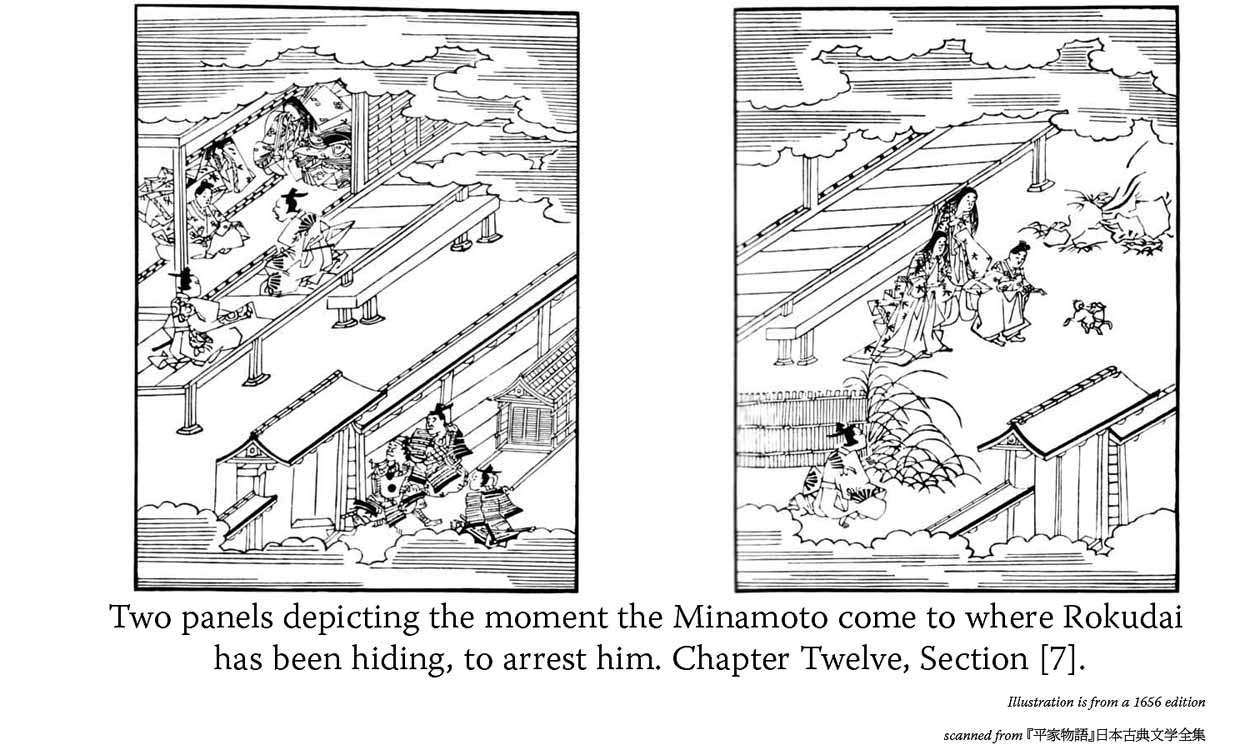
Rokudai is saved by Mongaku just before his execution
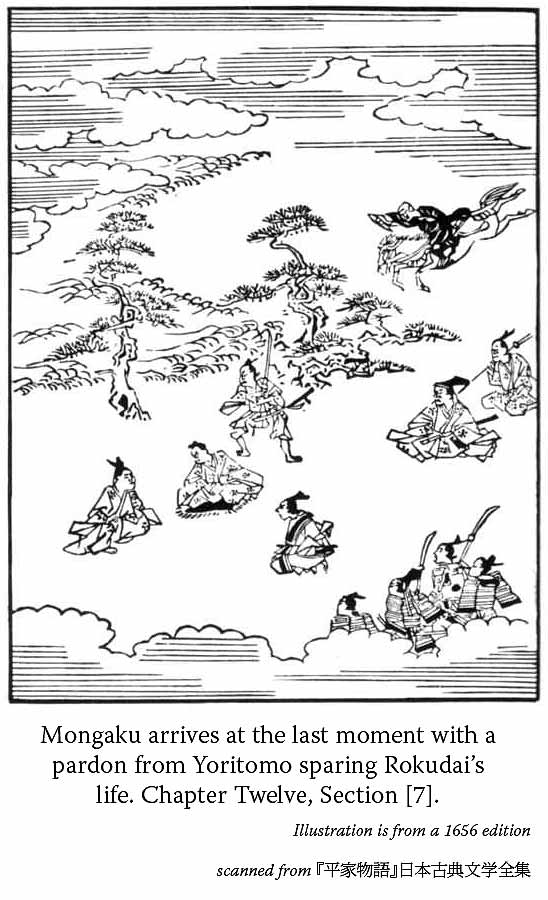
12-[8] Hase Rokudai --- Rokudai is able to see his mother one more time but she implores him to quickly become a monk (so that Yoritomo will allow him to live).
12-[9] The Execution of Rokudai --- One of Shigemori's sons, Tadafusa, is identified and ambushed at the Seta Bridge. Another, Munezane, when discovered commits suicide by fasting, knowing that he will be executed if he ever arrives at Kamakura. Yoritomo is again promoted. Then Go-Shirakawa dies in the third year of Kenkyû (1192). Yoritomo continues to kill rivals for his power. Mongaku attempts a revolt in 1198, soon after Yoritomo's death (this is told as information, the time line of the story does not include Yoritomo's death). Mongaku was banished for this. We also learn that Retired Emperor Go-Toba was sent to the same place when he rebelled many years later. Rokudai studies Buddhism fervently but Yoritomo finally did have him executed, when he was about thirty years of age. The section concludes, "Thus did the sons of the Heike vanish forever from the face of the earth."
Multimedia
Rokudai is executed in the final paragraph of the tale.
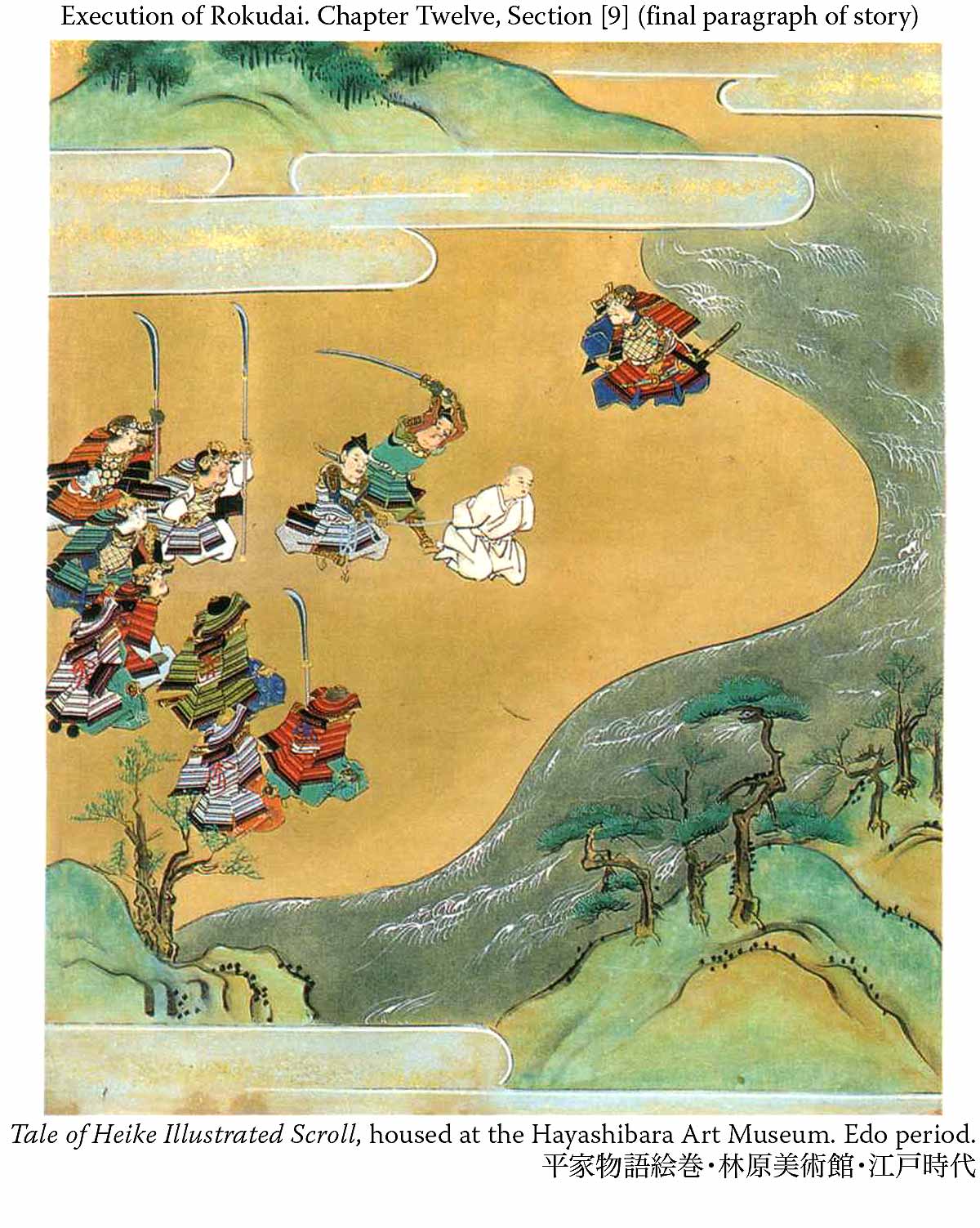
Eventual fate of the various members of the Taira clan
